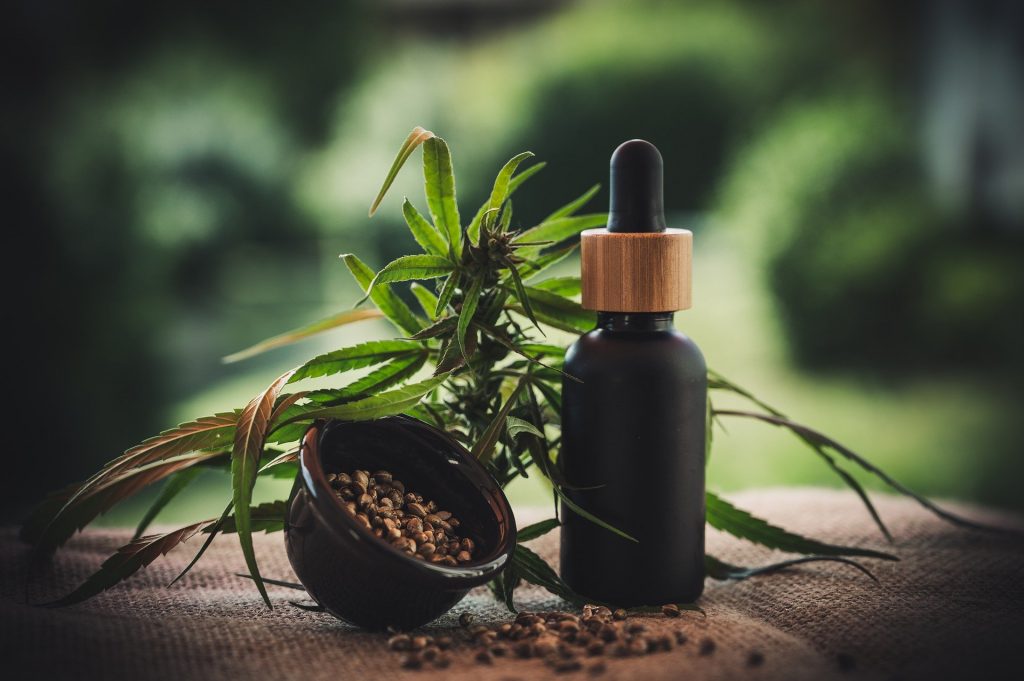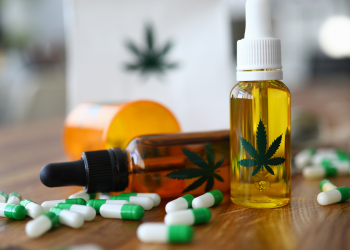How Does CBD Relief Cancer?
According to the American Cancer Society’s Global Cancer Facts and Figures, there have been 7 million new cancer diagnoses and 9.5 million cancer deaths worldwide in 2018. These numbers are predicted to grow to 27.5 million new cancer diagnoses and 16.3 million cancer deaths by 2040.
And those projections only take into consideration the growing and aging population. These numbers might be even more massive thanks to increases in cancer risk factors like higher smoking rates, unhealthy diet, and sedentary lifestyles in economically developing nations.
This represents a considerable burden on the healthcare system. Within us alone, over 1.7 million new cancer cases are diagnosed per annum. Therefore, the direct medical costs related to cancer in 2015 were estimated to be $80.2 billion.
In addition to the financial burden, this disease also takes an enormous toll on individual cancer patients and their families. A cancer diagnosis and, therefore, the battle that follows is often physically demanding and emotionally overwhelming.
Cancer researchers still hunt down novel ways to scale back these effects. One promising option is CBD. CBD, a non-psychoactive compound found in cannabis, appears to supply a good range of advantages for cancer patients. Studies prove CBD reduces pain, chemotherapy-induced nausea, anxiety, and sleep problems. Early research indicates CBD may even cause or contribute to neoplastic cell death, leading many to look at it as a possible anticancer drug. More research must be done, except, for now, many cancer patients are turning to CBD oil as to how to alleviate symptoms of living with cancer and improve their quality of life.
Cancer: A Summary
Cancer may be a broad term that applies to an outsized family of related diseases. An equivalent essential process causes all cancers—a group of cells begins to divide uncontrollably and spreads to nearby, healthy cells. This process can occur in any part of the body.
Despite being made from trillions of cells, our bodies are ready to tightly control each cell’s birth, growth, and death. But cancer removes the checks and balances that usually control cell growth.
Cancerous cells will still grow and divide while ignoring messages from their surrounding environment to hamper and stop. Those out of control cancer cells can then grow into nearby areas and effect harm to healthy tissues.
What Causes Cancer?
Cancer may be a genetic disorder. This suggests genetic mutations cause the disease. Within the case of cancer, these mutations are created within the genes that control how our cells grow and divide. Usually, quite one mutation is required for cancer to make. Every case of cancer features a unique set of genetic changes.
The mutations themselves can either be passed down from our parents or arise from exposure to harmful environmental substances. Common risk factors that increase your likelihood of getting cancer include:
- Age
- Alcohol use
- Tobacco use
- Exposure to cancer-causing substances
- Diet
- Chronic inflammation
- Obesity
- Radiation
- Excessive exposure to sunlight
While everyone’s risk for cancer increases with age, you’ll limit your chances of developing cancer by avoiding the above risk factors.
Treatment Options
The type of cancer treatment used will depend upon the shape of cancer and how advanced it’s become. Additionally, most of the people will receive quite one sort of treatment. Treatment options include:
Surgery: This procedure involves the removal of cancerous cells from your body by a surgeon. Sometimes surgeons can remove the whole bulk of a cancerous tumor, but even removing portions of the cancerous cells can help relieve painful symptoms and increase other treatments’ success.
Chemotherapy: This method uses powerful medications to kill cancer cells.
Radiation: radiotherapy uses high levels of radiation to wreck and eventually kill cancer cells.
Immunotherapy: This method aims to spice up your system so it can more successfully fight against cancer.
While advances in medical research have greatly improved cancer treatments’ effectiveness, most treatment options have unwanted, sometimes severe side effects. As an example, chemotherapy can potentially cause an extended list of undesirable side effects like mood changes, nausea, and vomiting.
What is CBD?

Cancer researchers and healthcare providers are still checking out new cancer treatments and remedies to help patients deal with their current treatments’ side effects. That’s where CBD comes in.
CBD is one of over 100 chemical compounds found naturally within the cannabis plant. These compounds are called cannabinoids, and that they mimic the structure of the endocannabinoids your own body produces, as a part of your endocannabinoid system.
The endocannabinoid system is to stay your body during a state of balance. It helps regulate your mood, system, appetite, sleep, and pain response. The ECS does this by way of cannabinoid receptors located in your central and peripheral nervous systems.
When endocannabinoids, or external cannabinoids like CBD, bind to those receptors, the interaction stimulates your ECS and helps bring the body back to balance. This is often why CBD produces such a good range of advantages, from pain and anxiety relief to reduced inflammation and nausea.
CBD vs. THC
You may be wondering if CBD is that the same as THC, another cannabinoid that comes from the cannabis plant. THC is well-known among the cancer community within medical marijuana and is usually prescribed to treat the adverse side effects of cancer treatment.
Medical marijuana has brought relief to several people affected by cancer. But, the FDA has not approved medical marijuana for cancer treatment. Despite this and its illegal status in many regions of us, oncologists still recommend medical marijuana to assist with symptom management of treatment-related side effects.
There’s an unfortunate lack of research watching THC and medical marijuana. But the research so far shows that medical marijuana is useful for treating anorexia, chemotherapy-induced nausea and vomiting, pain, insomnia, and depression. For a few patients, it’s the sole antiemetic (a drug that fights nausea and vomiting) that works. It’s also the sole antiemetic that increases appetite.
While THC is often useful, it also has some drawbacks. THC’s psychoactive properties produce a sense of being “stoned”, which will interact with the individual’s ability to function normally. For a few people, THC induces feelings of hysteria. There’s also the matter of legality with THC. Medical marijuana is merely legalized during a portion of states, and users typically need a prescription.
CBD offers a superb alternative to THC. This cannabinoid carries many advantages of medical marijuana (see ‘Benefits of CBD for Cancer’ below). But CBD is non-psychoactive—it doesn’t create a “high” like THC. CBD counteracts THC’s high, reducing the sensation of being stoned, alongside some adverse side effects like anxiety or paranoia.
Additionally, CBD is legal altogether, fifty states, and may be easily purchased online and in many local health stores. All of this makes CBD an attractive option for cancer patients seeking an equivalent relief of medical marijuana, but without the high or potential legal obstacles.
Benefits of CBD for Cancer
CBD research may be a new and growing field. Thus far, however, the results are promising—particularly for cancer patients. Specifically, CBD can help cancer patients deal with treatment’s side effects, like chemotherapy-induced nausea, pain, and sleep issues. There’s also evidence that CBD could also be ready to slow or prevent cancer growth.
CBD provides Chronic Pain Relief
Many individuals with cancer accept chronic pain. Cancer can cause discomfort because it invades and damages healthy tissue within the body. However, the treatments that focus on and fight cancer also can cause pain. Patients healing from surgery often feel pain while healing. And people affected by cancer may experience general aches, pains, and headaches on a more regular basis.
The medications most frequently prescribed for pain are opioids. These are highly habit-forming, which puts these patients in danger of addiction. They even have serious side effects, like sleepiness, constipation, nausea, and vomiting. Despite the threat of addiction and side effects, opioids are extremely effective at relieving pain. Unfortunately, some cancer patients are unresponsive to opioids.
The endocannabinoid system is involved in regulating pain, with a task in every stage of the pain processing pathway. This suggests that CBD compounds that stimulate the endocannabinoid system represent promising treatments for acute and chronic pain. And research shows that CBD could also help manage otherwise difficult to treat pain.
Plus, CBD doesn’t cause dependence or tolerance. For those worried about putting themselves in danger of addiction, CBD is often a safer alternative.
CBD Lessens Chemotherapy-induced Nausea and Vomiting
Chemotherapy is one of the foremost effective ways to kill cancer cells so far. Unfortunately, extreme side effects are common, like fatigue, hair loss, and chemotherapy-induced nausea and vomiting (CINV). CINV symptoms are so common—and so severe—that they cause up to half the patients to delay or quit chemotherapy entirely.
CBD has been demonstrated to suppress nausea and vomiting. With this antiemetic result, CBD can significantly reduce CINV. One study treated patients with a daily oral spray, which contained either a placebo or a CBD and THC mixture. The CBD/THC spray was well tolerated and significantly increased the proportion of patients showing an entire response (no self-reported nausea or vomiting).
Further, two separate systematic reviews of over 30 trials have found that CBD is significantly simpler in controlling nausea symptoms than other common antiemetic medications.
CBD Relieves Anxiety and Sleeps Problems
Some of the foremost common symptoms experienced by cancer patients include sleep problems. Typically, these present as chemotherapy-related fatigue, or some insomnia (difficulty falling or staying asleep). Problematically, poor sleep quality impairs the immune system’s ability to function, while also worsening mood and cognitive performance.
Fortunately, several studies have found that CBD improves sleep quality by enabling patients to nod off easier and reducing their nighttime awakenings.
Sleep issues themselves are often linked to pain or anxiety, both of which are common among cancer patients. Estimates range, but roughly 20% of cancer patients have anxiety or depression. CBD can help with anxiety, too, by activating 5-HT1A receptors within the brain. This interaction appears to facilitate serotonin production, creating an antidepressant-like effect.
CBD may Slow or Suppress Tumor Growth
CBD can also slow or stop tumor growth, consistent with a variety of studies. Two studies focused on carcinoma found that CBD killed cancer cells, or otherwise slowed the expansion of metastatic carcinoma. Similarly, CBD appears to inhibit tumor growth for cancer of the liver and glioblastoma.
In some cases, it appears that CBD doesn’t directly suppress tumor growth. Instead, it helps by enabling the first treatment to be more straightforward. For instance, one study found combining CBD with radiotherapy made the drug simpler.
As a natural anti-inflammatory, some researchers believe CBD can also have a preventative effect. There appears to be a causal link between inflammation and certain sorts of cancer so that a CBD regimen could lower one’s risk for thyroid, brain, and prostate cancers.
CBD linked to increased survival rates for Carcinoma
In arguably the foremost exciting finding to return out of CBD research, a 2018 study found that CBD may very well increase cancer survival rates. The five-year survival rate for carcinoma is 5%. Researchers split a gaggle of mice with carcinoma into two groups. One was treated with chemotherapy, while the opposite received a mixture of CBD and chemotherapy. The group that got CBD lasted almost three times longer than the chemotherapy-only group.
CBD and Chemotherapy increased survival rates among mice with Carcinoma
Researchers found that activating a particular cannabinoid receptor, referred to as GPR55, seemed to boost neoplastic cell growth within the mice. They, too, discovered that CBD was a GPR55 antagonist. Once they combined CBD with Gemcitabine (“GEM” within the image above), one among the first effective drugs in treating carcinoma, the CBD inhibited the receptor. As a result, the Gemcitabine was more straightforward in slowing tumor cell growth, resulting in a three-fold increase in survival rates.
It’s essential to recollect that this study was conducted on mice. More research still must be done to explore CBD’s efficacy in increasing cancer survival rates for humans.
Does This Safe Use CBD Oil for Cancer?
Generally, CBD is extremely safe and has few to no side effects. However, when side effects occur, they’re most familiar with people that are taking other medication. Even then, side effects are rare, but they’ll include tiredness, dry mouth, nausea, diarrhea, or appetite changes, or vital signs.
Because cancer patients are more likely to be taking other medications to manage their cancer, it’s essential to talk together with your doctor before using CBD. They will advise you on whether the CBD may interact negatively with your drugs (some studies show it increases the hepatic concentration of some medications, resulting in liver damage).
How to Use CBD Oil for Cancer
There are four foremost methods to use CBD oil. Each of those methods is equally effective. People choose one method over another, mostly supported personal preference.
Inhalation
CBD vape oils are explicitly designed to be inhaled through a vape pen or vaporizer. Inhalation of CBD provides the fastest relief because the CBD enters the bloodstream directly through the lungs. Many individuals prefer inhaling CBD as they find the physical act of inhalation relaxing, they need to feel the consequences as quickly as possible, and that they like that the vape flavors mask the natural, earthy flavor of CBD.
However, it’s essential to notice that CBD’s consequences last the shortest amount of your time with inhalation, between 2 to three hours vs. the 4 to six hours offered by other ingestion methods. For longer-lasting relief, we recommend one of the three ways below.
Sublingual
CBD oil tinctures require the user to put drops of the CBD oil beneath their tongue. With this method, onset may take longer than inhalation, but it’s still reasonably quick (around 5 to twenty minutes). People prefer sublingual tinctures as they will enjoy CBD with none other additives (such because the natural flavoring of CBD vape oils or CBD gummies), the dropper makes precise dosing easy, and that they work quickly.
Topical application
CBD oil also can be applied topically to the skin through creams, lotions, and gels. With this method of application, the CBD won’t enter your bloodstream. Alternatively, the CBD will involve cannabinoid receptors into the skin. Many of us prefer CBD topicals for managing pain, as rubbing the CBD cream into their skin allows them to offer themselves a massage.
One downside to topicals is that this method is, of course, less precise than other methods. However, CBD topicals will always accompany clear instructions to use the CBD for desired effects.
Oral ingestion
CBD oil also can be eaten, though CBD edibles or by adding CBD oil to food or drink. You’ll even swallow CBD capsules, which resemble traditional pills or soft gels or eat CBD gummies.
It can take 30 to 90 minutes with oral ingestion before you begin feeling the consequences since the CBD has to travel through your gastrointestinal system before it enters your bloodstream. However, many of us still like better to eat CBD as they want the flavors of CBD gummies or, on the opposite hand, the shortage of character provided by CBD capsules.
How Much CBD Oil to Require for Cancer
While CBD provides many benefits, merely finding the proper dose isn’t one among them. Finding your treatment is arguably the toughest a part of using CBD. Also, because the FDA doesn’t yet regulate CBD, no official dosing guidelines exist.
Most people use between 1mg to 6mg of CBD for every 10 pounds of their weight. You’ll find the recommended dose of CBD for your weight here.
The exact dose varies, supported the person’s weight, personal body chemistry, and, therefore, the intensity of their condition. Thanks to the severity of their symptoms, cancer patients typically need to use a better CBD amount.
When taking CBD, remember that it can take up to 90 minutes to feel the consequences with oral methods. In other ways, the results should be felt soon, within a couple of minutes. As you start your CBD regimen, begin with rock bottom dose for your weight and slowly increase from there until you discover it’s useful.
How to Buy CBD Oil for Cancer
While CBD itself remains secure, the industry is new and not yet regulated. If you’re curious about trying CBD oil, take the subsequent steps to make sure you purchase quality CBD oil.
Only purchase from manufacturers who use third-party labs to check the security of their ingredients. Third-party labs will test both CBD concentration and other cannabinoids and the safety of different components within the CBD oil. Manufacturers should make these safety certificates easily accessible to consumers, either online or with the merchandise packaging.
Only buy CBD products sourced from hemp, not marijuana. CBD oils are often sourced from either hemp or marijuana. However, marijuana isn’t legal altogether, fifty states, and it typically contains higher amounts of THC. CBD oils sourced from hemp will contain 0.3% THC or less, so that they won’t produce a “high” or show abreast of a drug test for marijuana.
Avoid synthetic CBD. Along an equivalent line, CBD should come from pure hemp and contain no artificial ingredients. Unnatural CBD is also likely to contain toxic ingredients and let extreme side effects. Instead, choose CBD products made up of 100% industrial hemp, locally grown within the USA, containing other organic or natural ingredients.








